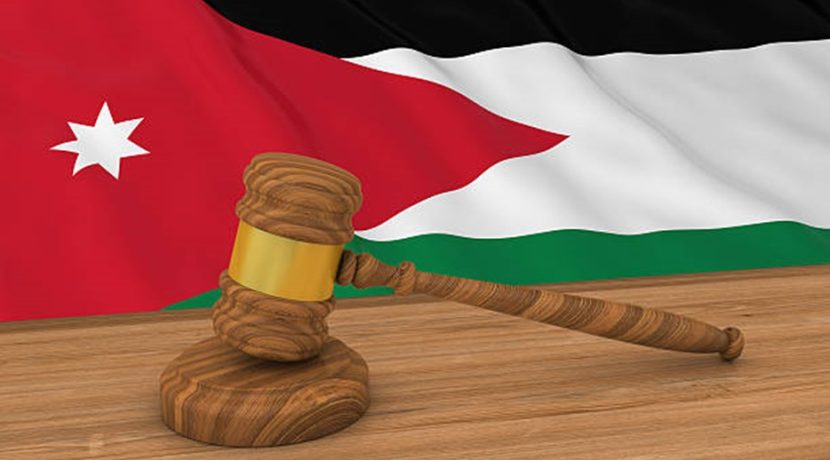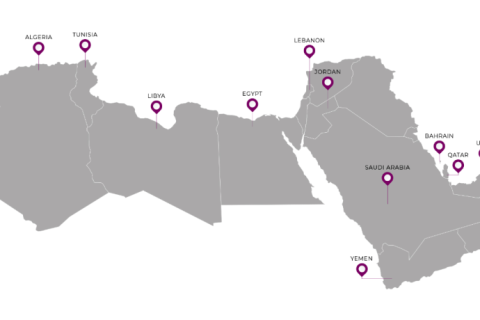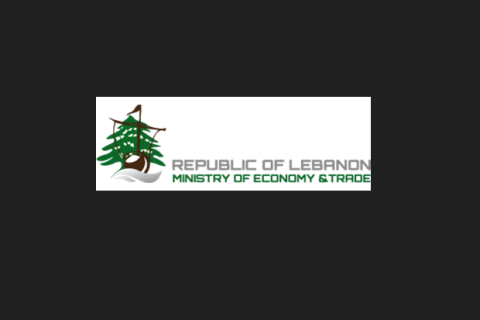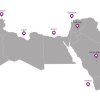Understanding the country’s trademark law is paramount for any lawyer venturing into the Jordanian market or interested in the intellectual property rights in Jordan.
This blog discusses:
- Key aspects of the trademark law in Jordan, emphasizing trademark registration, protection, renewal, and enforcement within the country.
- Significance of registering trademarks with the Jordan Trademark Office for brand safeguarding.
- Process of obtaining trademark protection in Jordan and the importance of trademark renewal to maintain legal rights.
Why Trademark protection in Jordan?
Before we delve into the law, we will first identify why brand owners usually seek protection in Jordan.
Brand owners, especially US brand owners, frequently seek trademark protection in Jordan for the following reasons:
- Jordan is a stable country politically and provides US brand owners with peace of mind when doing business there.
- Jordan is considered a gateway for US products in the Middle East region due to the country’s strategic market position and growing economic significance providing access to:
- Asia through Iraq
- GCC through Saudi Arabia
- Africa through Egypt
- Jordan has multiple international trade agreements utilized by US and European companies for ease of doing business.
In addition to the above, it’s worth noting that Jordan has entered into several international trade agreements. These agreements are instrumental for American and European companies looking to engage in business activities within the country. These agreements, such as the United States-Jordan Free Trade Agreement (FTA), which entered into force on December 17, 2001 “Link”, the Agreement on Trade-Related Aspects of Intellectual Property Rights (TRIPS) administered by the World Trade Organization (WTO) which entered into force on January 1, 1995 on Link, and the European Union-Jordan Association Agreement which entered into force in May 2002 on Link , serve as crucial frameworks facilitating smoother trade relations.
Such agreements offer various benefits, including reduced tariffs, simplified customs procedures, and enhanced market access for goods and services exchanged between Jordan, the US, and European countries. They foster an environment conducive to trade by promoting ease of doing business and creating opportunities for companies to expand their commercial activities across borders.
- Jordan is a signatory of multiple international IP treaties which facilitate IP protection, and enforcement including:
[WIPO] Berne Convention for the Protection of Literary and Artistic Work:
The Berne Convention for the Protection of Literary and Artistic Works, commonly known as the Berne Convention, is an international agreement governing copyright. Established in 1886 and administered by the World Intellectual Property Organization (WIPO), it sets forth the framework for the protection of the rights of authors in their literary and artistic works. Link
[WIPO] Nice Agreement Concerning the International Classification of Goods and Services for the Purposes of the Registration of Marks:
The Nice Agreement Concerning the International Classification of Goods and Services for the Purposes of the Registration of Marks is an international system used for the categorization and classification of goods and services for the registration of trademarks. The primary aim of the Nice Classification is to standardize the classification of goods and services for the registration of trademarks across different countries. The classification system is divided into 45 classes: 34 for goods and 11 for services. Goods are classified from classes 1 to 34, and services from classes 35 to 45 “Link”.
[WIPO] Paris Convention for the Protection of Industrial Property:
The Paris Convention for the Protection of Industrial Property, administered by the World Intellectual Property Organization (WIPO), is an international treaty that provides a framework for the protection of industrial property rights among member countries. Established in 1883, it’s one of the oldest intellectual property treaties and is aimed at fostering international cooperation in the field of industrial property. This treaty serves as a fundamental framework for the international protection of industrial property rights and promotes harmonization among the intellectual property laws of member countries “Link”.
[WIPO] Patent Cooperation Treaty:
The Patent Cooperation Treaty (PCT) is an international treaty administered by the World Intellectual Property Organization (WIPO) that simplifies the process of filing and seeking patent protection for inventions across multiple countries. The primary aim of the PCT is to streamline and facilitate the international patent application process. The most important principle of the Patent Cooperation Treaty is that it creates a “Centralized filing system”, meaning that the PCT system enables applicants to file a single international patent application (PCT application) in one language, with one set of fees “Link”.
[WIPO] Vienna Agreement Establishing an International Classification of the Figurative Elements of Marks:
The Vienna Agreement Establishing an International Classification of the Figurative Elements of Marks, commonly known as the Vienna Classification, is an international treaty administered by the World Intellectual Property Organization (WIPO). It provides a standardized system for the classification of figurative elements (or elements containing images or logos) in trademarks. The Vienna Classification aids trademark offices, examiners, and applicants in effectively categorizing and searching for trademarks based on their visual components. By offering a standardized system for classification, it contributes to the efficiency and accuracy of the trademark registration process “Link”.
[WIPO] WIPO Copyright Treaty:
The WIPO Copyright Treaty (WCT) is an international treaty administered by the World Intellectual Property Organization (WIPO), established to address copyright issues in the digital environment and provide protection to authors and creators of literary and artistic works in the digital age. The most important principle of the WIPO Copyright Treaty is “Digital copyright protection”, which extends copyright protection to digital works, including computer programs, databases, websites, and other digital content. It also reinforces the protection of traditional works such as books, music, films, and art in the online context “Link”.
- Jordan has multiple premium manufacturing facilities licensed by international brands to service countries in the region.
These facilities serve as production hubs, catering to the needs of countries across the region. These licensing agreements allow Jordan to manufacture products bearing the trademarks and intellectual property of these global brands. The country’s manufacturing sector benefits from its strategic location, and preferential trade agreements, enabling it to produce high-quality goods for export to neighboring and international markets. Certainly, here are a few examples of premium manufacturing facilities in Jordan licensed by international brands:
- Apparel and Textile factories licensed in Jordan: Jordan hosts manufacturing facilities licensed by international fashion brands like Nike, Adidas, and GAP.
- Pharmaceutical factories licensed in Jordan: Jordan is home to pharmaceutical manufacturing facilities licensed by multinational pharmaceutical companies such as Pfizer, Novartis, and Sanofi. Food and Beverage factories licensed in Jordan: Several international food and beverage companies have licensed production facilities in Jordan like PepsiCo, Tropicana, Nestlé, Mondelez International. These examples showcase how Jordan serves as a hub for diverse manufacturing sectors, benefiting from licensing agreements with international brands to produce a wide array of products for regional and global markets.
- Jordan has superior brand protection at customs and borders to ensure brand owners trademark rights are protected and enforced in an efficient and cost-effective manner.
Customs enforcement in Jordan involves measures to prevent the import or export of counterfeit goods, including products that infringe on trademark rights. These measures aim to stop the entry of goods that violate intellectual property rights and to support the legitimate rights of brand owners.
To ensure brand protection at customs and borders in Jordan, brand owners typically register their trademarks with the Jordanian authorities and record these trademarks with the customs office. This registration facilitates the identification and interception of counterfeit goods by customs officials.
- Jordanian trademark laws are advanced and applicable across all levels of the intellectual property system, covering administrative processes at the Jordanian Trademark Office to enforcement matters at various court levels.
In Jordan, enforcement matters related to trademarks can be addressed at various levels of the court system. Disputes or infringement cases concerning trademarks can be brought before the courts, where aggrieved trademark owners can seek legal remedies such as injunctions, damages, and other appropriate relief.
Furthermore, Jordanian courts appoint judges with expertise in intellectual property matters to handle over trademark cases. This ensures a more focused and knowledgeable approach to handling trademark disputes.
Laws and regulations governing trademarks in Jordan:
For IP lawyers and brand owners with an interest in the Jordanian market, comprehending Jordanian trademark laws is crucial when advising clients interested in Jordan or seeking to protect their trademarks within this jurisdiction. As we are all aware, when it comes to trademark matters, protection, enforcement, and litigation proceedings are composed of an intricate web of trademark laws, trademark decrees and implementing regulations, consumer protection laws, unfair competition laws, and international IP treaties, and trade laws.
Primary trademark laws and implementing regulations relating to trademark protection and enforcement in Jordan:
The primary legislation governing trademarks in Jordan is the Trademarks and Geographical Indications Law No. 33 of 1952, and decrees related to trademarks in Jordan which were subsequently amended and updated by Law No. 15 of 2008.
- Regulation No. 37 of 2000 on Amendments to the Trademarks Rules on Link.
- Regulation No. 7 of 2000 on Border Measures for the Protection of Intellectual Property rights on Link.
- Regulation No. 116 of 2004 on Trade Names on Link.
- Order on Trade Names of 2006 on Link.
- Regulation No. 128 of 2009 on Amendments to Trademarks Rules on Link.
- Regulation No. 22 of 2010 on Amendments to the Trademarks Rules on Link.
- Law No. 20 of 1998 on Customs which was amended to Law No. 10 of 2019.
- Anti-dumping and Anti-Subsidies Regulation No. 26 of the Year 2003.
- Law No. 99 of 2021 on system of border measures to protect intellectual property.
Primary International treaties and agreements relating to trademark protection and enforcement in Jordan:
- Paris Agreement that signature on April 22, 2016, and entry into force on November 4, 2016, on Link.
- World Trade Organization (WTO) – Agreement on Trade-Related Aspects of Intellectual Property Rights (TRIPS Agreement) (1994) on that signature on January 1, 1995, and entry into force on April 11, 2000, on Link.
- Vienna Agreement Establishing an International Classification of the Figurative Elements of Marks that signature on August 14, 2008, and entry into force on November 14, 2008 on Link.
- Nice Agreement Concerning the International Classification of Goods and Services for the Purposes of the Registration of Marks on that signature on August 14, 2008 and entry into force on November 14, 2008 on Link.
Jordan Trademark Authorities:
The competent authority overseeing trademark protection in Jordan is the Registrar of Trademarks at the Ministry of Industry, Trade, and Supply, and it is the primary government agency responsible for the administration and registration of trademarks in Jordan.
Jordanian Civil Courts: Trademark infringement cases are typically handled by civil courts in Jordan. These courts have jurisdiction to hear cases related to intellectual property rights, including trademark disputes.
Customs Enforcement: In addition to civil court proceedings, trademark owners can also work with Jordanian customs authorities to prevent the entry or exit of counterfeit goods through border control measures on Link.
Deciphering the Trademark Law in Jordan:
Jordanian trademark law – Absolute Conditions to protect a trademark:
Trademark protection in Jordan extends to trademarks that are distinctive and not descriptive.
The law prohibits the registration of trademarks that may mislead the public or violate public order or morals.
The following trademarks are also prohibited from being registered according to Jordanian Law No. 33 of 1952 article (8):
- Marks that resemble the emblem of His Majesty the King or royal crests or the word royal or any other words, characters or representations which may lead to the belief that the applicant enjoys royal patronage.
- The emblem or decorations of the government of the Hashemite Kingdom of Jordan or foreign states or countries unless with the authorization of the competent authorities.
- Marks indicating any official designation unless otherwise the application of which is demanded by the competent authorities to whom such mark belongs or its under their supervision.
- Marks which resemble the national flag or the military or naval banners of the Hashemite Kingdom of Jordan or its honorary decorations or insignia or the national, military, or naval banners.
- Marks that include the following words and expressions:
- “patently” “patented” – “by the royal patent” – “registered design” – “copyright”, “counterfeiting is a forgery”, or similar words or expressions.
- Marks that are contrary to the public order or morality, or which lead to deceiving the public, or marks that encourage unfair trading competition or contain false indications as to their real origin.
- Marks consisting of figures, characters or words which are commonly used in trade to distinguish or describe kinds of goods or their types or describe the type or class or goods, or words whose ordinary signification is geographical or a surname, unless represented in a special manner, provided that nothing contained in this paragraph shall be deemed to prohibit the registration of marks of the nature described herein which have a distinctive character.
- Marks identical with or similar to emblems of exclusively religious signification.
- Marks which contain the picture, name of the trade name of a person, or the name of a body corporate or of an association, unless the consent of the person or body corporate concerned has been obtained. In the case of persons recently dead, the registrar may ask for consents of their legal representatives.
- A mark identical with one belonging to a different proprietor which is already entered in the register in respect of the same goods or class of goods for which the mark is intended to be registered, or so closely resembling such trademark to the extent that it may lead to deceiving third parties.
- Marks which are similar to or identical with the Red Crescent or the Red Cross emblems on a white background or the Red Cross or the Cross of Geneva.
- The trademark which is similar to or identical with, or constitutes a translation of, a well-known trademark for use on similar or identical goods to those for which that one is well-known for and whose use would cause confusion with the well-known mark, or for use of different goods in such a way as to prejudice the interests of the owner of the well-known mark and leads to believing that there is a connection between its owner and those goods as well as the marks which are similar to or identical with the honorary badges, flags, and other emblem as well as the names and abbreviations relating to international or regional organizations or those that offend our Arab and Islamic historical values.
Jordan Trademark Filing Priority Claims:
Jordan is a signatory to the Paris Convention. As a member of the Paris Convention, Jordan recognizes and allows for priority claims in trademark applications.
The Paris Convention provides the principle of “priority right,” allowing applicants who have filed a trademark application in one member country to claim priority when filing in another member country, such as Jordan. This means that if someone files a trademark application in a Paris Convention member country and subsequently files a similar application in Jordan within six months, they can claim the earlier filing date in the first country as the effective filing date in Jordan.
Jordan Trademark Filing – Required documents:
The documents required for trademark protection in Jordan are:
- A sub legalized Power of Attorney. “Sub legalization” implies that a POA document has been certified or authenticated by a competent authority in the country where the power of attorney is issued, often in the principal’s home country, and then further authenticated or legalized by the Jordanian consular or diplomatic office and then locally authenticated by the ministry of foreign affairs in Jordan.
- A certified priority document translated to Arabic if priority is being claimed.
Trademark supporting documents should be filed within 90 days of filing the trademark application in Jordan.
Jordan Trademark Classifications:
Jordan adopts a Single Class System, where each class should be filed in a separate trademark application.
Limitation on classes, and goods and services:
In Jordan, during the process of filing for trademark registration, the applicant is required to specify the goods and/or services for which they are seeking protection. The classification system used for goods and services in Jordan follows the Nice Classification (NCL), which categorizes goods and services into different classes for trademark registration purposes.
When specifying goods and services, applicants should provide a clear and accurate description. The description should precisely indicate the nature and scope of the goods or services associated with the trademark, otherwise there is a high likelihood of an office action requiring the applicant to amend the trademark application.
It is worth mentioning that that goods and services related to alcohol, as well as pork meat, are registerable in Jordan.
Jordanian trademark Prosecution – Process to protect a trademark:
In Jordan, a trademark examination duration may take between seven and twelve months. The entire process of registering a trademark, from the initial filing to official registration may take up to eighteen months.
Trademark examination and notification in Jordan:
In Jordan, the trademark examination process typically involves both formal and substantive examinations conducted by the Jordanian trademark office. The examination process aims to ensure that trademark applications comply with legal requirements and meet the criteria for registration. Here’s an overview of the examination process:
· Formal Examination:
Initially, the Jordanian trademark office conducts a formal examination to review the application for compliance with administrative requirements. This involves checking if the application form is correctly filled out, and all necessary documents are attached.
· Substantive Examination (absolute and relative grounds):
Absolute Grounds (prevent registration prima facie – based on articles 7 and 8 of the law): Lack of distinctiveness, descriptive mark…
Example: When using numbers in the trademark, the examiner will ask the applicant to submit a declaration pledging not to use the number separately from the trademark and to remove any exclusive rights over this specific number.
Relative Grounds: When older similar or identical marks are already registered, the TMO will issue a rejection against the recent trademark. Applicants should keep in mind though that examiners do not usually cross-examine a new application with older marks that have the same meaning but are registered in a different language.
Following the formal examination, The TMO conducts a substantive examination to assess the trademark’s distinctiveness and compliance with legal criteria. The TMO examines the trademark application as well to ensure it doesn’t conflict with prior trademarks or well-known trademarks.
In case the trademark application is rejected, the applicant has 30 days from the date of notification of the rejection decision to reply to the said rejection before the TMO otherwise the application will be considered rejected. If the appeal is rejected, the applicant may appeal the decision before the Supreme Court of Justice within 30 days from the date of notification of the decision or withdraw the application.
The specific methods for receiving notifications regarding trademark applications in Jordan might vary and could involve a combination of manual and online processes as outlined below:
· Manual Notifications from the Jordanian trademark office:
Traditionally, notifications regarding trademark applications, rejections, or any other official communication might be sent via postal mail or courier to the address provided by the applicant or their representative.
· Online Notifications from the Jordanian trademark office:
Notifications might also be sent electronically via email or made available through the Jordanian online portal.
Jordanian trademark Rejections:
In Jordan, trademark applications can face rejection during the prosecution process for various reasons based on non-compliance with legal requirements or failure to meet certain criteria. Here are the subsequent steps in the event of rejection:
Notification of Rejection: The applicant is formally notified of the rejection decision by the Jordanian TMO and provided with reasons for the rejection.
Response Window: The applicant has 30 days from the date of notification of the rejection decision to submit a response challenging or contesting the rejection before the TMO.
Appeal: If the initial response does not result in the acceptance of the trademark, the applicant can appeal the decision further, including the option to appeal to the Supreme Court of Justice.
Trademark Publication in Jordan
After a trademark application successfully passes the examination stage and is deemed acceptable, it is published in the Official Gazette by the Jordanian TMO for public notification.
The publication period in Jordan for any third party to oppose a published mark is 90 days from the date of official publication. Any interested party may contest the trademark registration, and the applicant will then have 30 days from the date of notification to reply to the opposition. The first day following the official period date would be considered the initial day of the legal period. For instance, if a deadline is set for 90 days from a specific starting point, include the first day as part of the counted period.
In Jordan, the official publication of trademarks occurs in the official Gazette. The Gazette serves as a public record where trademarks that have successfully passed the examination phase are published for opposition purposes. The publication period within the Gazette allows a window of opportunity for third parties or interested parties to review the newly published trademarks. The gazette is published in English and Arabic and includes all trademark details.
You can download the gazette from the Jordanian online portal on this link:
Jordanian trademark Oppositions:
In Jordan, during the trademark prosecution process, third parties have the opportunity to oppose a trademark application if they believe it infringes upon their rights or conflicts with existing trademarks. Oppositions provide an avenue for interested parties to challenge the registration of a trademark.
Interested third parties, such as owners of prior trademarks or concerned entities, have 90 days from the publication date, to file an opposition against the trademark application.
Opponents need to submit a formal opposition statement to the Jordanian TMO. This statement should detail the grounds for opposition and provide evidence supporting their claims.
Upon receipt of an opposition, the applicant has the opportunity to respond within 30 days, to counter the arguments raised in the opposition statement.
The Jordanian TMO examine both the opposition and the applicant’s response before issuing a decision.
If the applicant doesn’t submit a response to the opposition within the specified period (30 days) from the date of receipt, in this case, the TMO examiner will issue a decision of the opposition.
If the Jordanian trademark office rejects the opposition based on merit or formality grounds, then the trademark application will proceed to registration and issuance of the certificate.
If Jordanian TMO finds merit in the opposition, the trademark application may be refused or subject to modification or limitations.
Renewing trademarks in Jordan:
In Jordan, to maintain the validity of a registered trademark beyond the initial 10 years period, trademark owners must apply for a trademark renewal. Notably, trademarks can be renewed without the requirement to demonstrate their actual use in commerce. Unlike some jurisdictions, Jordan doesn’t mandate proof of use to maintain a trademark. However, it is the responsibility of the trademark owner to inform the Jordanian trademark office of any changes in ownership, name, or address related to the registered trademark. Keeping these details updated is crucial to ensure accurate records and correspondence.
Requirement to use a registered mark in Jordan – Jordanian trademark law on article (22) stipulates that registered trademarks must be used within three years from the registration date. Or the mark might be vulnerable for cancellation action. While the requirement to use a mark is stipulated by law, the trademark office does not audit, or require any proof of use upon renewal, or at any point in time for that matter. Non-use cancellation action is usually initiated by third parties looking to protect a similar or identical mark in Jordan.
Trademark registration in Jordan is valid for a period of 10 years from the filing date and its registration may be renewed for similar durations.
In Jordan, trademark renewal applications can typically be filed within the last year before the expiration date of the trademark registration.
Grace period for trademark renewal:
The grace period for renewing a trademark in Jordan is one year after the expiration date. If the trademark is not renewed within this grace period, it will be considered cancelled. The trademark owner can refile the trademark application within one year following cancellation, and no other party can apply for the same trademark within that timeframe. The owner of a trademark that has been deemed canceled has the option to request its re-registration at any time unless it has been registered by another party.
Maintaining and updating trademark details in Jordan:
If there is a change in the address of the trademark owner or agent, it is essential to record the modifications before proceeding with the renewal process. The trademark information must be amended to ensure that it reflects the updated details.
According to Article (26) of the Jordanian Trademark Law, the applicant/trademark owner may change the address or update any data on the trademark. And it is permissible to make several changes to the trademark in one step. An application must be submitted to obtain a certificate from the TMO of the changes made to the trademark.
To update trademark details in Jordan, specific criteria and procedures are likely to be in place. This may involve submitting certain documents or forms to the Jordanian TMO. It’s important to note that there could be associated fees for updating trademark details, and these fees may vary depending on the nature of the requested action.
According to Jordanian law, the trademark owner has the right to assign it to anyone, and if the trademark owner’s data, such as address and name, have not changed, and if any change occurs in the data, it must be recorded. It’s important to note that Jordan is not a party to Madrid Agreement, therefore international applications are not available in Jordan.
What is required to enforce a trademark in Jordan?
The Jordanian trademark law provides mechanisms for combating infringement, encompassing civil and criminal penalties for unauthorized use or infringement of registered trademarks.
IP lawyers may successfully defend their clients’ interests in the Jordanian market by having a thorough awareness of registration procedures, protection mechanisms, enforcement channels, and compliance standards.
In conclusion, this knowledge equips IP lawyers to proactively address trademark-related challenges, mitigate risks, and pursue appropriate legal remedies, thereby fostering a secure and compliant environment for their clients’ trademarks in Jordan.
Frequently asked questions:
To protect a trademark in Jordan Do you need a local trademark agent:
According to the Jordanian law, if an applicant is a non-resident a trademark application has to be filed through a local agent at the trademark office. A local agent can be a lawyer, or an IP practitioner licensed to practice before the trademark office in Jordanian TMO.
If an applicant is an individual: who is applying for a trademark in Jordan, they can do so if the applicant, provided that they meet the eligibility criteria.
An individual applicant can submit the trademark application directly to Jordanian TMO or through a legal representative if preferred. While it is not always mandatory for individual applicants, having a local address or representation in Jordan might be beneficial for effectiveness in the application process.
If an applicant is a local Jordanian company: it has the option to apply independently or through an agent to register a trademark using the standard procedures for trademark registration. These procedures typically include a preliminary search, filing the application, examination, publication, opposition period, and registration.
The applicant/company can benefit from the assistance of a local trademark agent or attorney, who can navigate the process efficiently and ensure compliance with local laws and regulations, thus increasing the chances of a successful trademark registration.
If you are a national of Jordan: you are not required to engage a local agent or attorney to file a trademark application.
If you are a resident of Jordan, you will need a local agent or attorney to file a trademark application.
If an applicant, represented by a local agent, submits a trademark application to the TMO, they might still need to enforce their trademark rights through legal avenues if infringement or violations occur after the trademark is registered. This enforcement might involve taking legal action against infringers or those violating the registered trademark rights.









